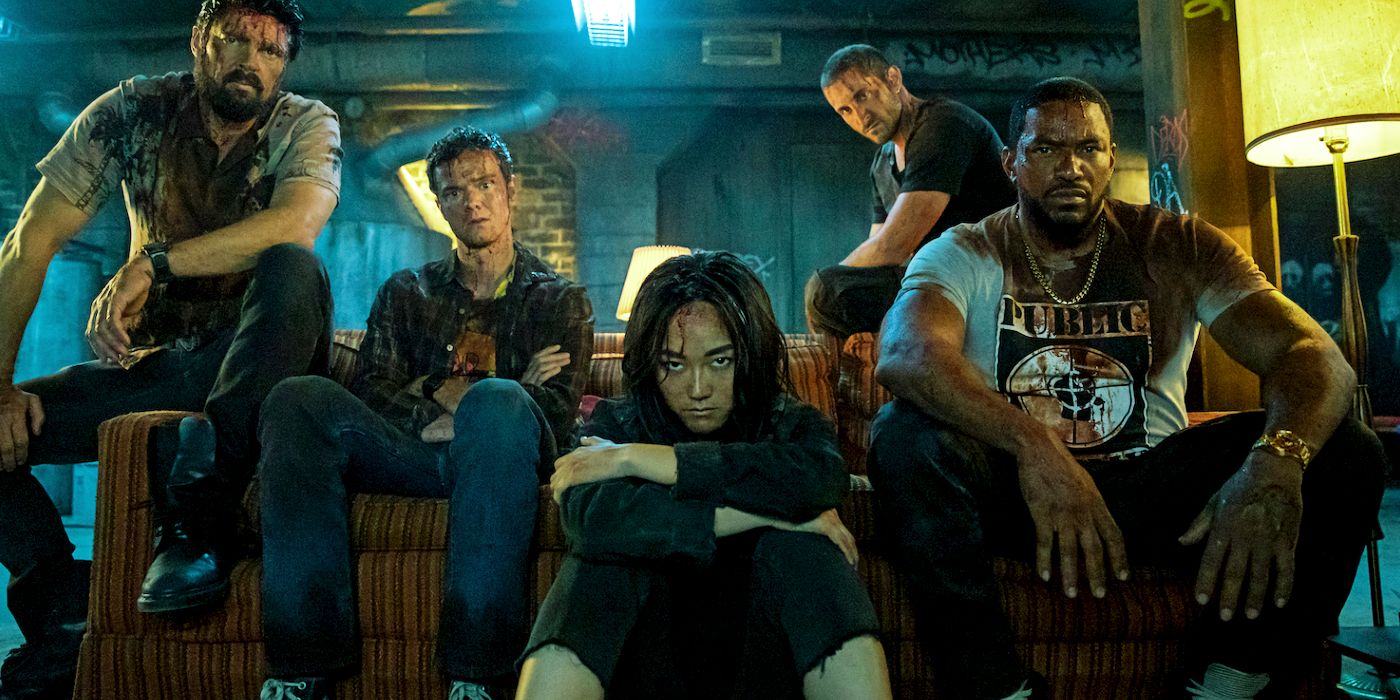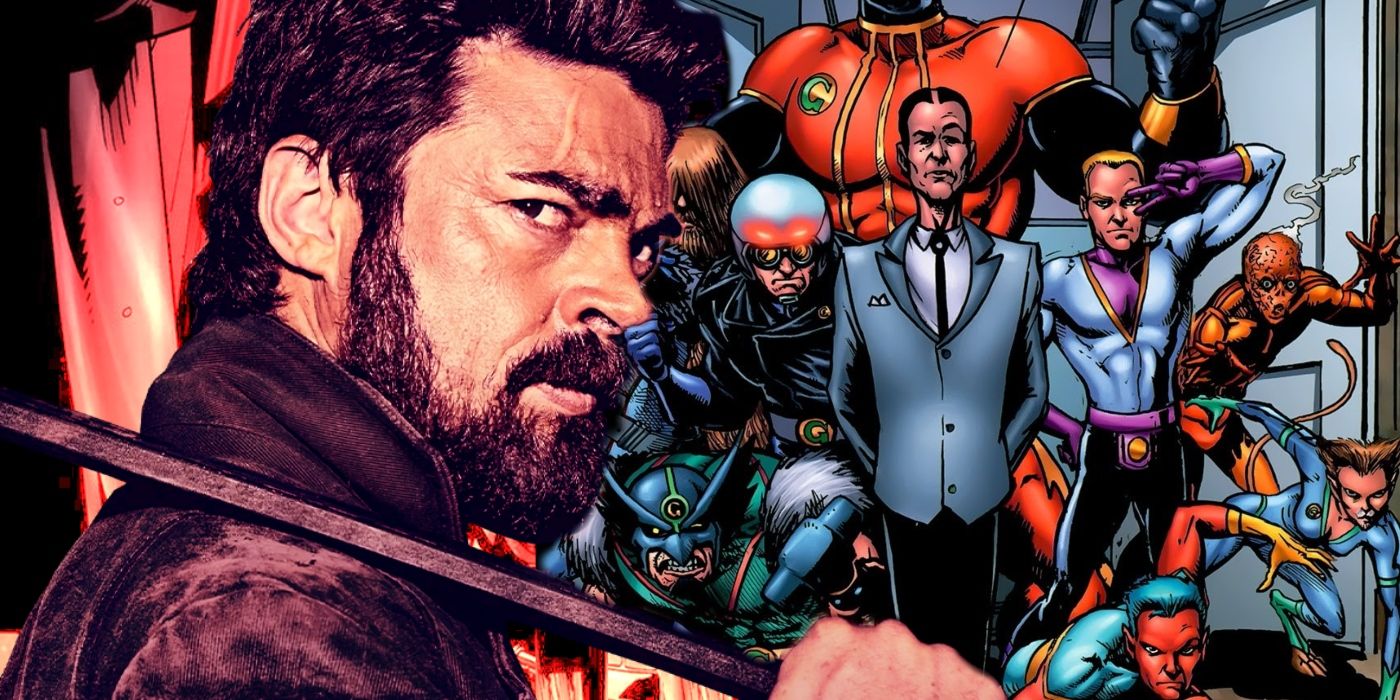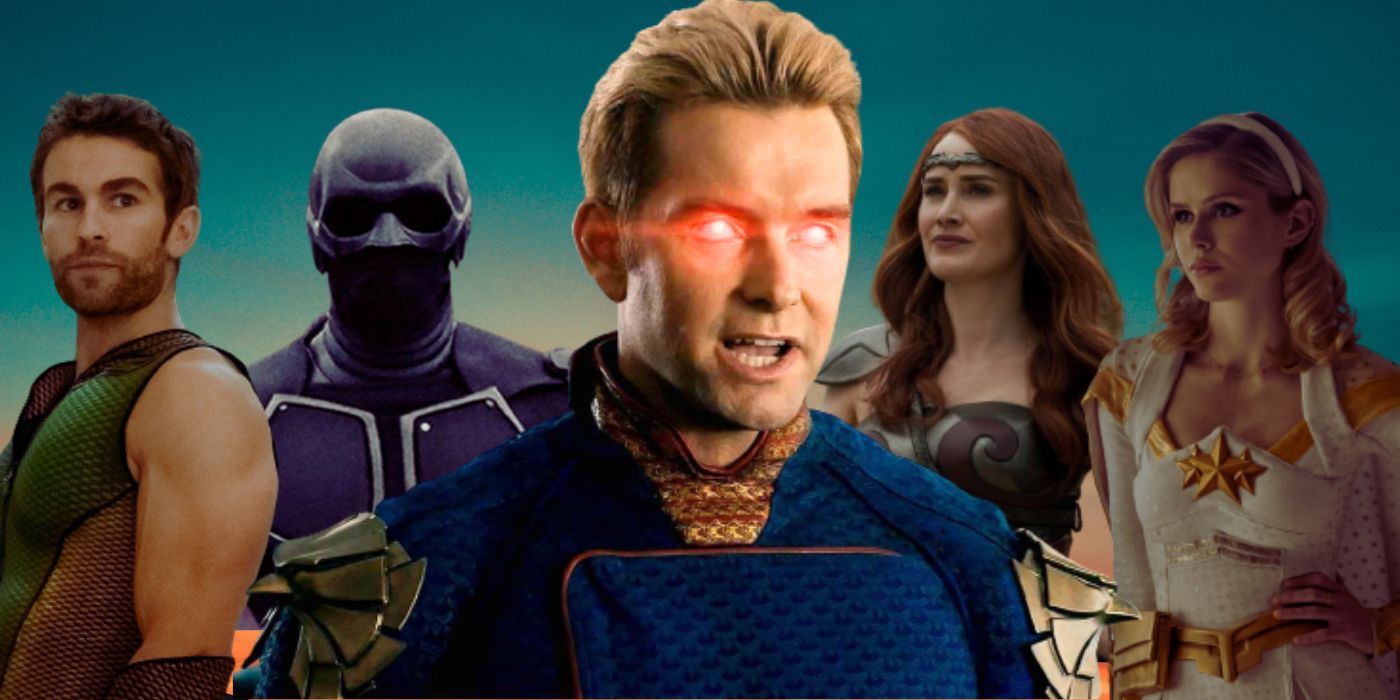Garth Ennis called his original idea for the Boys’ powers “the worst idea in history” – but there’s a reason it was part of the franchise’s pitch.
Homelander may be The Boys‘ most terrifying powerhouse, but one narrowly avoided change would have made his place in the franchise impossible. That’s because when writer Garth Ennis was originally pitching the series, he intended Billy Butcher’s team to have a combined superpower that would leave any Supe at their mercy.
In The Boys Omnibus volume 4, the original comic’s creators discuss how they initially pitched the series to DC Comics (who published a few of the early issues before releasing the project, which was then picked up by Dynamite Entertainment.) While a lot of elements remain the same, one big difference is that the five members of the teams were initially planned to have a combined superpower which activated when they were all together. This ability would have allowed them to surround any Supe and drain them of their powers. Ennis’ original pitch reads:
Only when all five of the Boys are together can they employ their real power, however. A by-product of the serum, it allows them – by combined concentration – to switch off superpowers. The five simply surround the target, focus their thoughts, and he or she is instantly rendered no more powerful than an average human being. Magic rings don’t work. Speedsters can run no faster than you or I. And Gods are mere mortals.

In the end, this detail was dropped, and the Boys were given minor superstrength and durability to make them a physical match for the average Supe. However, if the Boys had been able to drain any Supes’ powers, it would have made Homelander’s place in the franchise pointless – his godlike abilities wouldn’t mean much if all the Boys needed to do was get the jump on him.
“What I realized early on was that action in The Boys shouldn’t involve “powers,” as such: it should be about the kind of violence that occurs outside bars at 2 am…”
– Garth Ennis
The Boys Could Originally Negate Superhuman Powers
The Power Needed All Five Members to Work

Ennis’ original pitch has some major surprises – for example, he conceived of Mother’s Milk as secretly being 200 years old – but a lot of the core characters and early plot events are recognizable. The team’s combined powers are the biggest change, with Ennis explaining that these abilities would come from a $14 million-a-shot serum, which ended up being Compound V. That change alone is smart, since it means the team get their powers the same way as all other Supes, while both versions explain why the Boys are such a small unit.
One huge element of The Boys not in Garth Ennis’ original pitch is the Seven. This makes sense, as the series was originally set in the DC Universe.
However, Ennis’ pitch also suggests that the serum power requires five users to work. This would explain why the Boys’ unit was structured as it is, and also tease a missing fifth member who preceded Hughie, setting up an ongoing mystery in the comic (this remains more or less intact, with Greg Mallory being the team’s original fifth member.) Of course, the major downside is that the story would have needed to contrive ways to split up the team every time a Supe target needed to be a real threat.
The Boys’ Garth Ennis Hates the Idea in Retrospect
Homelander Wouldn’t Work If The Boys Could Negate His Powers

While Ennis hates the idea in retrospect, there is a reason he initially wanted the ‘no powers’ power for Butcher’s team. Ennis explains that he wanted the comic to depict realistic and relatively horrific violence. One of the ways The Boys satirizes superhero stories is its attitude to the ‘consequence-free’ violence many traditional comics embrace in their depiction of crime-fighting vigilantes. The Boys critiques the power fantasy of superheroes by showing how dark their violence would be if the implied power balance was taken seriously. Annotating his initial pitch, Ennis writes:
What next, stand in a circle and shoot beams of love from their eyes? Jesus! The worst idea in history notwithstanding, what I realized early on was that action in The Boys shouldn’t involve “powers,” as such: it should be about the kind of violence that occurs outside bars at 2 am, where the victim is surrounded and overwhelmed by individuals intent on his destruction. In other words, totally unfair and highly effective.
Interestingly, one huge element of The Boys not in Ennis’ pitch is the Seven. None of the members existed yet, despite being running villains who appear from the very start of the series. It makes sense that Ennis would have the idea for the Boys’ powers before conceiving of the uber-powerful Seven, since as a concept it robs Homelander and his allies of what makes them most threatening. The idea of a team of black-ops specialists finding a way to beat superhumans would be far less ‘David and Goliath’ if each fight started with the Supes being robbed of their powers.
Since Homelander’s presence in the story hinges on his huge power imbalance with everyone else, he’d have effectively been ruined if the Boys could switch off his abilities whenever they wanted. However, the Boys’ initial powers make a lot more sense once you know that the series was originally going to be set in DC continuity.





